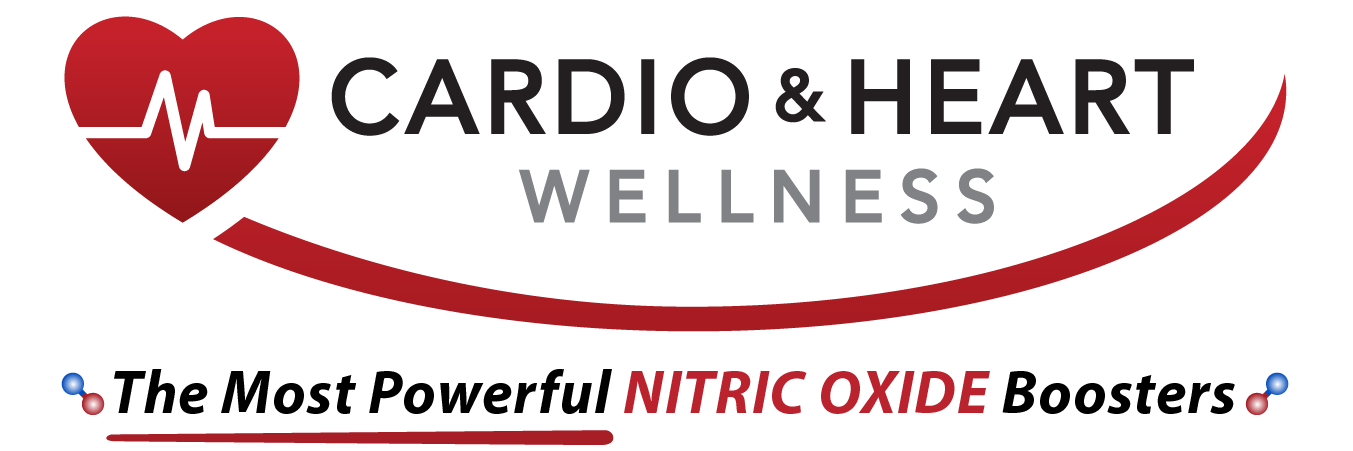Welcome to a fascinating journey into the heart of your body’s inner workings, a journey that revolves around a critical player, nitric oxide. This humble molecule, as simple as it may seem, wields significant power over a myriad of our body’s physiological processes. From regulating blood flow to boosting our immune responses, nitric oxide is a silent hero keeping our bodies functioning optimally. But where is nitric oxide produced in the body? The answer lies in various cells and tissues working together to ensure our well-being.
Key Takeaways
- Nitric oxide is a multifunctional molecule with roles in cardiovascular health, immune system support and inflammation regulation.
- Nitric oxide levels should be kept in balance to avoid health issues. Natural sources like nitrate-rich vegetables can help increase them.
- Nitric Oxide Plus is an effective supplement containing L-arginine, L-citrulline and other ingredients for heart wellness & blood circulation enhancement.
Understanding Nitric Oxide: The Basics
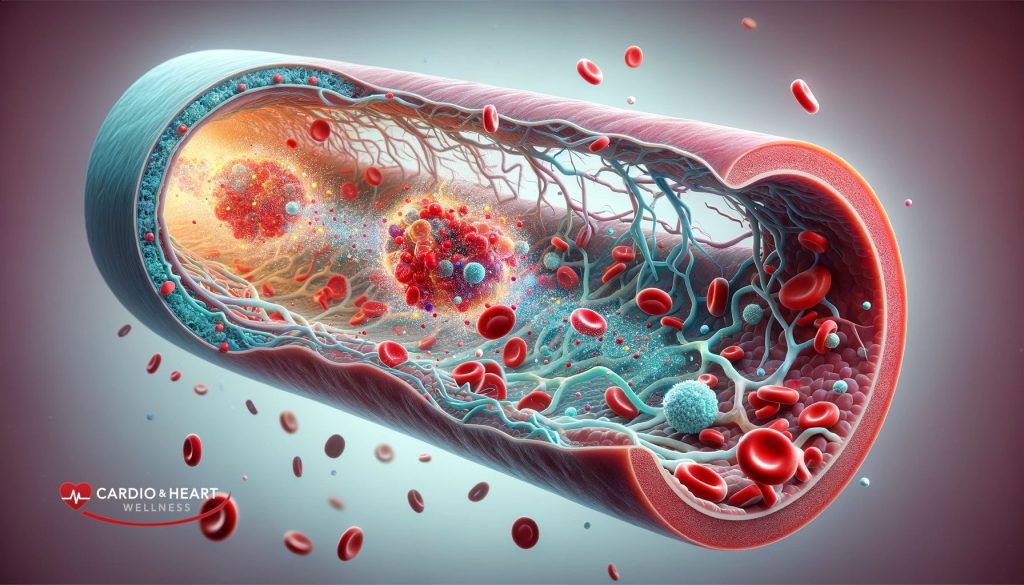
Nitrogen monoxide, otherwise known as nitric oxide, is a powerful molecule with many implications for our bodies. When produced within us, it helps keep our health in check and also plays an important role outside of the body’s system too, taking part in various environmental processes.
It can be thought of like a traffic cop that controls circulation by maintaining healthy blood vessels and ensuring all cells are sufficiently supplied with oxygen and nutrients thanks to its involvement in vascular smooth muscle relaxation which sees inner muscles relaxed, promoting better flow throughout.
Despite being quite short-lived once entering into bloodstreams (only surviving mere seconds), there are ways you can naturally increase your intake. Regular exercise, getting enough sunshine exposure or spending time outdoors along with managing stress levels plus consuming high amounts of nitrate-rich vegetables should all help here!
Learning more about this substance gives insight on how it operates internally – from where it originates through to what keeps us functioning optimally when we have sufficient amounts present inside us.
Nitric Oxide Synthesis: The Enzymatic Pathway
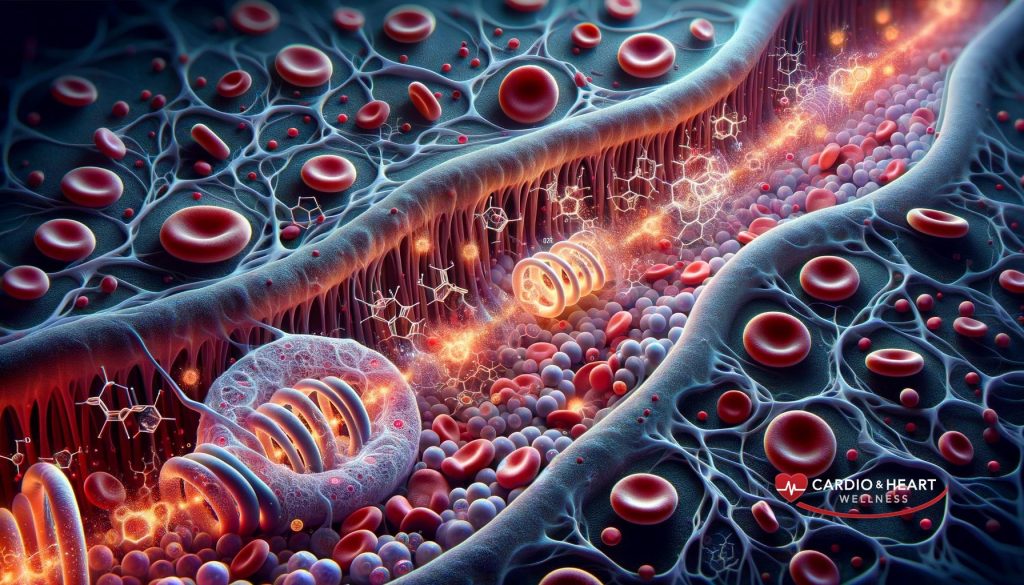
The production of nitric oxide is comparable to a major performance where the enzyme, nitric oxide synthase (NOS), takes on an essential part. It acts as the conductor in this ‘symphony’ taking place within our human bodies – these NOS proteins include neuronal NOS (nNOS), endothelial NOs (eNOs) and induced NOs(iNOs). L-arginine, molecular oxygen O2 NADPH along with cofactor tetrahydrobiopterin H4B are all utilized by this process which results in producing nitrogen monoxide.
When it comes to understanding how Nitrogen Monoxide has its purpose as being apart of communication signals – once released activates an enzyme known as soluble guanylate cyclase two step process plays a substantial role when it pertains to other various physiological processes that occur around us.
Endothelial Cells and Blood Vessels
Our blood and lymphatic vessels have an inner lining made up of endothelial cells, which provide oxygen and nutrients while also controlling flow. These important cells are responsible for producing nitric oxide – a process that regulates circulation, pressure levels, plus the prevention of clots forming in our bodies. Should insufficient nitric oxide be produced it can lead to diminished functioning by the endothelial layer resulting in enhanced susceptibility to vascular diseases.
Neurons and Nerve Cells
Nitric oxide is an integral component that plays a vital role in maintaining the balance of multiple processes essential for survival. This gas produced by both blood vessels and neurons serves as an intercellular messenger, allowing communication between brain cells which influences memory formation and learning – should nitric oxide signaling be deficient, cognitive impairments are likely to occur. It also has various other effects on our health such as regulating blood pressure through its contribution towards smooth muscle relaxation. All this indicates just how influential nitric oxide is when it comes to overall well-being.
Non-Enzymatic Production Methods
The focus of our work until now has been on the production of nitric oxide by enzymatic means. It is possible to generate this compound via non-enzymatic processes such as UVA photolysis – a reaction where UV light breaks down NO derivatives and forms nitric oxide.
While these alternative methods might not be able to provide the same concentration or level of control over Nitric Oxide production that enzymes do, factors like metal availability, pH levels, temperature and ionic strength can all affect their efficiency in producing NO gases.
The Many Functions of Nitric Oxide in the Body
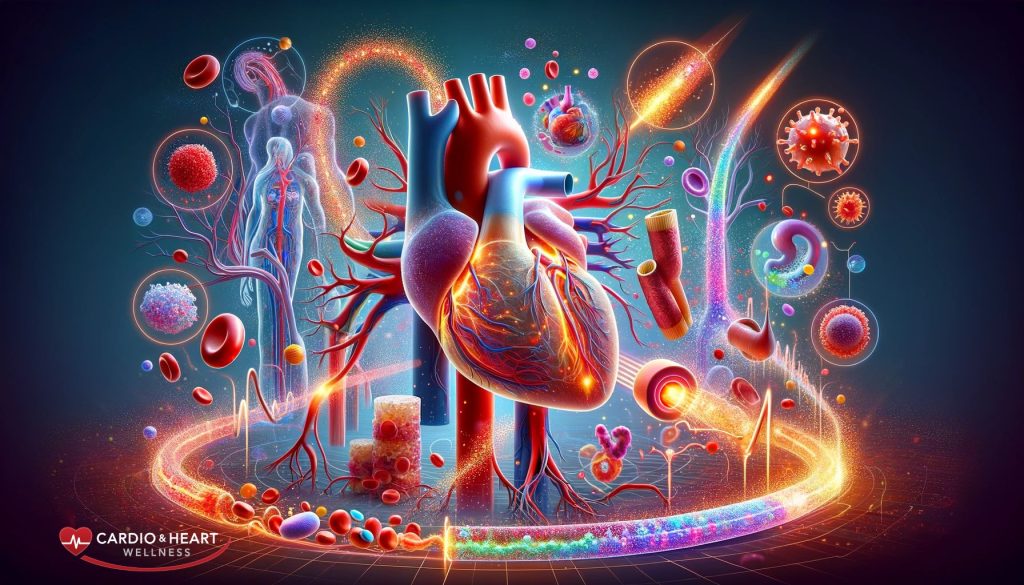
Nitric oxide has a range of functions in our bodies, beginning with cardiovascular health. It can relax and widen blood vessels so that there is an increase of circulating blood flow resulting in reduced levels of pressure throughout the body.
Nitric oxide also plays a role in helping to combat bacterial invasion as well as inflammation through its antimicrobial properties. It even helps coordinate immune reactions while clearing away dead cells from tissues efficiently.
Cardiovascular Health
Nitric oxide is an important element in maintaining good cardiovascular health, as it acts as a vasodilator to relax and widen blood vessels, resulting in improved circulation with lower levels of pressure. This molecule helps avert clot formation, which can impede normal functioning of the vascular system if left unchecked. When nitric oxide production drops below adequate levels, it produces nitric oxide. There are adverse effects such as risk factors relating to heart disease or higher vulnerability for various types of diseases related to the circulatory system.
Immune Responses and Antimicrobial Properties
Nitric oxide has a lot of advantages for our immune system. Its properties have the capacity to combat numerous bacterial strains, plus boost existing antibiotics at the same time. This molecule helps in clearing away toxic elements and also modulates inflammation responses from your body’s defences. It is an important part of strengthening your immunity overall.
Nitric Oxide Deficiency and Excess
Maintaining an even balance of nitric oxide in the body is essential for optimal health and should not be overlooked. Not having enough nitric oxide may lead to exhaustion, diminished circulation, hypertension, and heart problems. Conversely, too much nitrogen can result in disorders and other harms that create numerous medical issues. Both a lack or overabundance of this gas can cause considerable damage. Thus it must be monitored vigilantly for healthy functioning throughout life stages.
Boosting Nitric Oxide Levels Naturally

By eating vegetables that are high in nitrate, like beetroot, exercising regularly, getting enough sun exposure and avoiding tobacco use can all help boost levels of nitric oxide. Managing stress is important for increasing production. This will result in increased concentrations of the compound over time.
Through following these strategies, you can naturally increase your quantities of this substance, which positively affects more nitric oxide formation thereafter.
Nitric Oxide Plus: A Powerful Supplement for Cardio & Heart Wellness
Nitric Oxide Plus is a popular supplement designed to boost nitric oxide production. This powerful product includes L-arginine, L-citrulline, Nitrates and other food based ingredients like beets and red spinach. Not only does it help promote heart health and blood circulation, but numerous studies have found that the use of this type of supplementation can reduce memory loss as well as improve oxygen levels in critically ill patients alike. It’s always advisable for anyone considering taking such supplements to consult with their healthcare professional first in order determine proper dosage instructions before doing so.
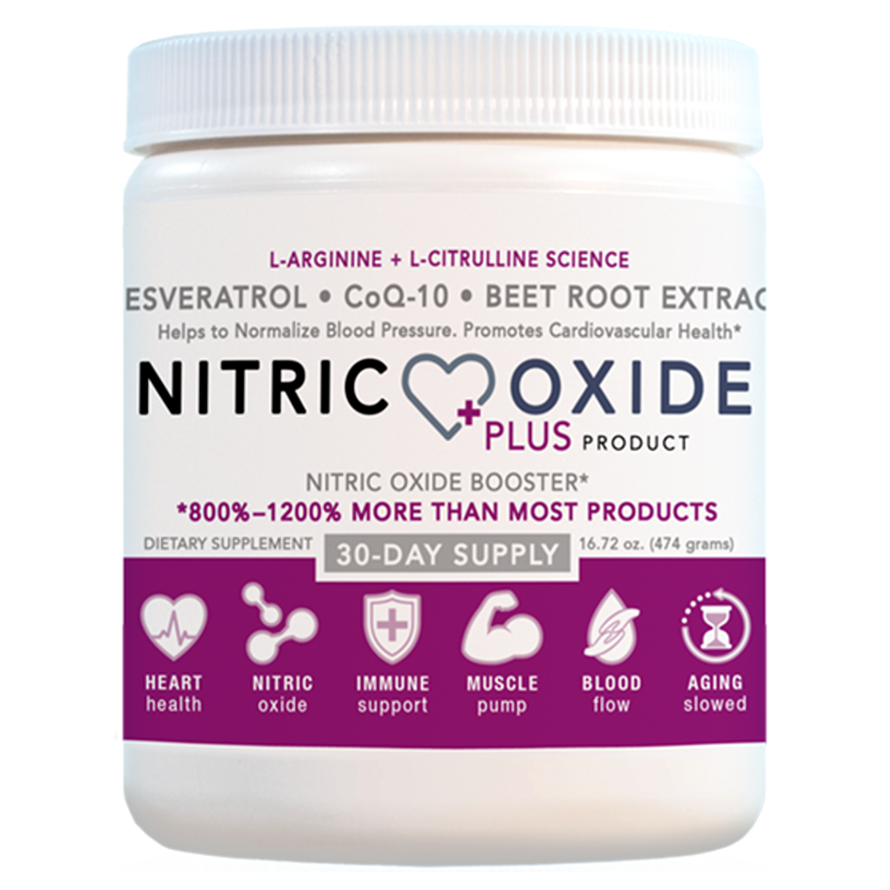
Summary
Nitric oxide plays a crucial role in our body’s functioning. It is responsible for many processes such as regulating blood pressure, enhancing immunity and controlling the flow of blood. Thus, maintaining proper nitric oxide levels can do wonders for us!
We all know that living a healthy lifestyle brings benefits, and this also holds true when it comes to increasing nitricoxide production naturally within our bodies so we have more access to its advantages. Let’s take action towards better health now!
Frequently Asked Questions
What organ produces nitric oxide?
In 1998, researchers from the Department of Anesthesiology and Intensive Care in Sweden discovered that both the gut and liver produce nitric oxide – a compound integral to maintaining good health.
What triggers nitric oxide production?
Nitric oxide production is catalyzed by the nitric oxide synthase enzyme (NOS), which generates this compound from arginine. To promote its creation, one should consume foods rich in nitrates along with L-arginine and/or L-citrulline as well as limit mouthwash use and practice exercise. Platelet derived factors, shear stress stimulation plus acetylcholine or cytokines are all able to induce NO synthesis via endothelial nitric oxide synthase enzymes eNOS).
What is nitric oxide, and why is it important?
Nitrogen monoxide (also known as nitric oxide) is essential in our body’s physiological functions. It helps to regulate blood circulation and reinforce immune systems. This molecule plays an indispensable role for maintaining good health.
How can we increase our nitric oxide levels naturally?
Boosting nitric oxide production in a natural way can be achieved by engaging in regular exercise, soaking up some sunlight, decreasing stress levels and consuming vegetables high in nitrates. Eating these vegetable-sourced Nitrate will have an influence on the overall increase of this compound’s manufacturing process.
What is Nitric Oxide Plus, and how does it support cardiovascular health?
Nitric Oxide Plus is a supplement made to enhance cardiovascular health, featuring L-arginine and L-citrulline as main components that work together to promote nitric oxide production. This serves the purpose of facilitating healthy heart functions and better circulation in general.
